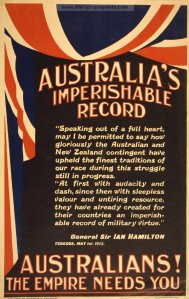We, the undersigned Indigenous students, register our formal protest at the events which have occurred at the National Union of Students’ (NUS) National Conference and their detrimental impact to autonomous Indigenous representation through the peak body of student unionism. We call for the broader disaffiliation of member unions, and seek an increased focus on Indigenous student organisations on member campuses, and an autonomous peak body of Indigenous student unionism.
We understand that this open letter will not forge a change in policy, approach or practice for NUS, but we cannot let this disgrace be unspoken or without reply and condemnation, nor without the opportunity to present an alternative model of Indigenous student unionism, one which is autonomous, outside factional control and self-determining.
Our formal concerns and protest
Whilst the National Union of Students has had a particularly flawed history of undermining and exploiting Indigenous students and their autonomy (including co-opting previous efforts to build an independent Indigenous student union and a more autonomous portfolio) the recent removal of the already-meagre honorarium for the National Aboriginal and Torres Strait Islander Officer has caused grave hurt, disempowerment and concern to Indigenous students in a context of broader cuts by Liberal and Labor governments.
Despite the fraught history of NUS and Indigenous students, we were nonetheless shocked to learn that National Labor Students (a student branch of Labor Left), Student Unity (a student branch of Labor Right) and the Socialist Alternative (a trotskyist organisation) had voted to strip the Aboriginal and Torres Strait Islander, International and Disability departments of their funding.
Notwithstanding NUS’ poor performance so far in speaking to and acting on a foray of cuts to Indigenous education this year, including the effective end of the long-standing Indigenous Tutorial Assistance Scheme, widespread racism and settler colonialism in proposed and implemented curriculums, and the restructuring of Indigenous accommodation options, the defunding of the department has guaranteed ongoing inaction and silence on Indigenous policy and on the attacks on Indigenous students.
NUS cuts to the Aboriginal and Torres Strait Islander department come at a time of broader Indigenous education cuts and have left us devastated, with few places to turn for representation and the resources to work for equitable and radical changes to Indigenous education, locally and nationally. NUS has left us vulnerable and without defence from widespread failures in Indigenous education over the last decade.
Celeste Liddle, National Indigenous Organiser from the National Tertiary Education Union, has done excellent work in bringing these systemic failures to light, and we encourage you to read her work on them.
It is not only the removal of resources and honorarium from the Aboriginal and Torres Strait Islander Students department that is of concern, but the expectation that Indigenous students will contribute their uncompensated and disempowered labour to the Union in order to bring it to surplus and to ensure its continued relevance in education advocacy.
In order for us to continue to advocate through established means against the failings in Indigenous education, we are asked to work for free. Without working for free in NUS, we cannot guarantee that the organisation would even acknowledge these problems in Indigenous education. This binds our free labour to the union in exchange for having any national acknowledgement of Indigenous students or policy.
Context
NUS has a history of co-opting Indigenous students in order to appear to be engaging these issues, applauding the discussion of Indigenous policy and Indigenous commentary on ‘intersectionality’, but this engagement is shallow and self-serving. NUS’ conduct better reflects their attitudes towards Indigenous students, including the brokering of factional deals with the Aboriginal and Torres Strait Islander Students department, the forging of proxy forms for Indigenous students , picketing against Indigenous voters and harassment of Indigenous students. This year, the General Secretary of NUS referred to the Aboriginal and Torres Strait Islander Student, Disabilities and International portfolios as ‘useless’.
In light of the heavy focus on the gendered wage gap by NUS campaigns this year (some of which attempted to include a race analysis), this move to remove pay from International, Disabilities and Indigenous representative positions is revealing of their wider attitude to the value of the work of International, Disabled and Indigenous students.
This year, Indigenous students Kyol Blakeney and Anna Amelia rose to speak to NUS’ neglect of Indigenous policy, confronting conference floor on their apathy to Indigenous students and issues. They were met with praise from white students. When those same students rose to condemn the pulling of funding from the department, instead of being met with standing ovations, they were harassed, and accused of being ‘scabs’.
Developing the national NUS Aboriginal and Torres Strait Islander position itself was an exercise in demonstrating how quickly mainstream unions and institutions reject Indigenous self-determination and autonomy. The model of autonomy put forward by Indigenous students was compromised by mainstreaming. Mainstream union protection for Indigenous students is frail at best. At worst, and as repeatedly demonstrated, introducing Indigenous peoples as merely a cog of a larger student and factional process is less well-meaning solidarity, as it is a means for self-congratulation.
Our labour and our language has been co-opted into feigning an anti-racist, anti-colonialist, anti-ableist and ‘intersectional’ appearance for a racist, colonialist and ableist union, and its factions. We can no longer allow this to be so.
We will no longer be brought into sessions to provide our Cultural and lived knowledge to benefit an organisation which uses us to perform interpersonal anti-racism as a cheap political trick. We will no longer provide settler-framed images of pity to then be negotiated out of resources and power to implement change, especially now that we can never be reimbursed for the pleasure of that exploitation.
We reject the false choice put on us by NUS and will direct our advocacy and labour away from the union. We seek to use this opportunity to emphasise that there are other choices for Indigenous students than NUS, and that we can and will build them.
We condemn individual vote-carrying members of those factions who complicitly directed their small power to deliver this blow to Indigenous students. We do not accept that your responsibility for this can be directed away to your binding faction. Moreover, we hope that you understand the structural and interpersonal weight of your actions. This is of grave and critical impact to Indigenous students as a whole, Indigenous access to education, and our material resources for autonomy, but also to each of us personally.
NUS cannot escape from the historical and social context of its actions when it chooses to axe the financial recognition of Indigenous contributions to the union. It is distinctly unsettling to see justifications of the greater good and student/worker rights used to justify disempowering Indigenous students in the name of buoying a union surplus. As the stations did to Indigenous jackaroos, as forced labour and separation did to Aboriginal house servants, as the present tethers welfare to forced work and land surrender, NUS seeks to profit from not only Indigenous images, stories, narratives and anti-racist currency, but from the invisible work Indigenous persons, including ourselves, have contributed to the union, while ironically labelling Indigenous student leaders “scabs” for protesting this.
If NUS cannot continue to exist over the next five years without defunding these portfolios, as President Deanna Taylor has suggested, then perhaps it is better to simply let the institution dissolve than to allow another union to be built from the unpaid, co-opted labour of Indigenous students, International Students and Disabled Students.
Call to action
As a group of Indigenous student leaders, we recommend to all campuses affiliated to the National Union of Students that it be disaffiliated and defunded immediately in light of the atrocious behaviour towards Indigenous students, disabled students and students of colour demonstrated at NUS National Conference and the culture that has made this behaviour the norm in student political circles. The defunding of national Indigenous, International, and disability representative positions at NatCon this year, and the election of a white South African man to the position of Ethno-Cultural representative, are recent examples in a long line of examples that NUS does not support autonomous politics that it cannot co-opt and control.
We extend our solidarity to all Indigenous students, disabled, students, and people of colour who have been affected by the recent events at NatCon, and recognise their efforts to create empowering and radicalised spaces within an often apolitical framework dominated by white careerists and factionalist power plays which do not support us, include us or value our participation beyond what capital we can produce for them.
We call for the development of a new, independent, self-determined Indigenous student union on a national level. We will no longer provide our work and expertise, Cultural, lived and learned, to the National Union of Students in attempting to secure one sliver of institutional capacity from which they will derive benefit. We can no longer attempt to educate or persuade, as that relies upon a good faith and sincere approach to Indigenous students, which NUS has demonstrated that it does not possess.
We hereby support:
- The disaffiliation of campus unions and student bodies from the National Union of Students
- Formal condemnation of the actions of the National Union of Students by campus unions, student bodies and student networks.
- A block on the sharing of Indigenous knowledge, labour and experience with the National Union of Students
- The development of independent Indigenous student bodies on every campus
- The development of a peak, autonomous Indigenous student union.
We ask for the support of Indigenous and non-Indigenous students nationally in doing this.
Alison Whittaker, Gomeroi, BA/LLB student, former UTSSA Indigenous Officer and Women’s Officer
Maddee Clark, Bundjalung, Indigenous officer of the University of Melbourne Student Union 2014
Azlan Martin, Nunga, BA/Psychology student
Oscar Monaghan, Murri, BA/LLB student USYD, Autonomous Collective Against Racism Officer Bearer 2014
Kyle Webb. Dharug. BA. Indigenous Officer of the University of Melbourne Student Union 2014.
Kyol Blakeney, President of the University of Sydney SRC.


